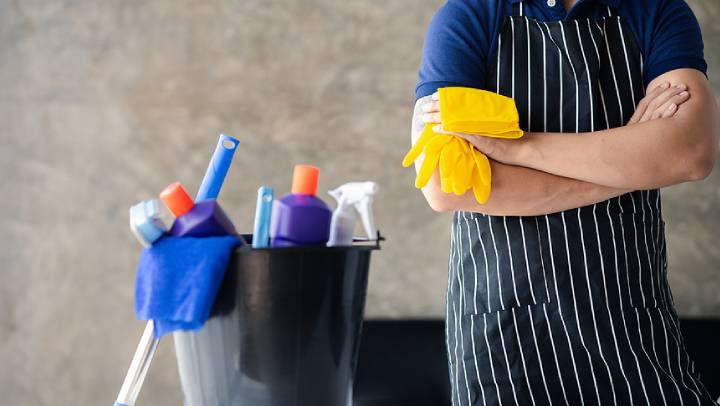
In the competitive landscape of office cleaning services, businesses seek solutions that not only meet their cleanliness standards but also align with ethical and responsible practices. One of the leading approaches that have reshaped the dynamics of the cleaning industry is the implementation of the Progressive Wage Model (PWM) for cleaning sectors in Singapore. The model was developed by Tripartite Cluster for Cleaners (TCC) to set mandatory wage and training standards for cleaning companies and employers of in-house cleaners, ensuring fair compensation and skill development for Singapore citizens and permanent residents across various cleaning job categories.
In this article, we will explore how the Progressive Wage Model positively influences office cleaning services for businesses in search of reliable cleaners.
1. Elevated standards for office cleaning
When it comes to office cleaning and disinfection services in Singapore, meeting and exceeding cleanliness standards is essential. The implementation of the Progressive Wage Model for cleaning sectors in Singapore ensures a workforce that is not only well-compensated but also undergoes continuous training.
For instance, cleaning companies must ensure that their outsourced cleaners meet the Progressive Wage Model’s training requirements by completing Workforce Skills Qualification modules from the approved list outlined in the SkillsFuture Singapore (SSG) training framework for the cleaning sector, therefore resulting in an elevated cleaning standard for your office.
2. Skilled cleaners for specialised tasks
When businesses look for cleaners to address specific cleaning challenges, such as carpet shampooing or glass cleaning within office spaces, having a skilled and well-compensated workforce becomes crucial. Increased salaries facilitated by the Progressive Wage Model enable cleaning companies to invest in specialised training programs for their staff.
For example, hiring cleaners with expertise in handling delicate surfaces and electronic equipment or implementing specific sanitation protocols allows cleaning companies to cater to diverse client needs. This specialisation not only ensures a higher standard of cleanliness but also contributes to the overall satisfaction of businesses seeking tailored cleaning solutions.
3. Strategic cost savings for businesses
For businesses exploring office cleaning services, the long-term cost savings tied to the Progressive Wage Model and increased salaries are essential. A well-compensated workforce minimises turnover rates, reducing recruitment and training costs for cleaning companies. This not only leads to a more stable and skilled workforce but also aligns with the broader aim of maintaining cost-effectiveness in the cleaning industry.
4. Positive corporate image and brand association
As businesses seek to engage with ethical and socially responsible partners, the Progressive Wage Model plays an important role in highlighting the benefits of fair wages and professional growth. Office cleaning companies that adhere to the Progressive Wage Model demonstrate their dedication to fair wages, employee well-being, and skill development. This dedication might resonate with their customers, staff, and the public at large, creating a positive brand association.
Conclusion
In the dynamic landscape of office cleaning services, the implementation of the Progressive Wage Model and the commitment to increased salaries shape a narrative of excellence and professionalism. The Progressive Wage Model not only sets mandatory wage and training standards but also elevates the overall standards of cleanliness through continuous training. This ensures a skilled workforce capable of addressing specific cleaning challenges within office spaces.
Give us a call now or send in an enquiry for a free quote!
© Copyright 2023 Office Cleaning Singapore